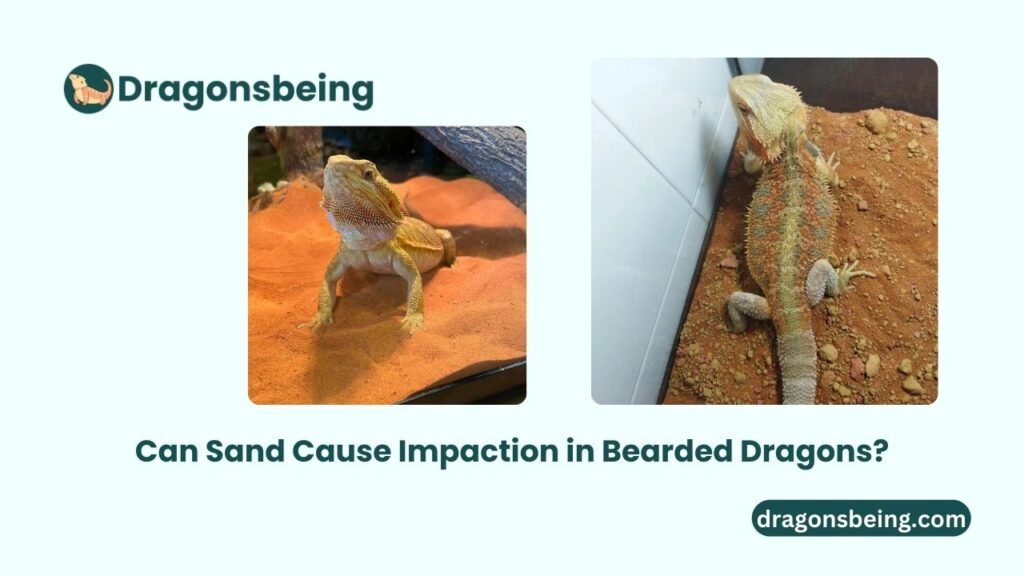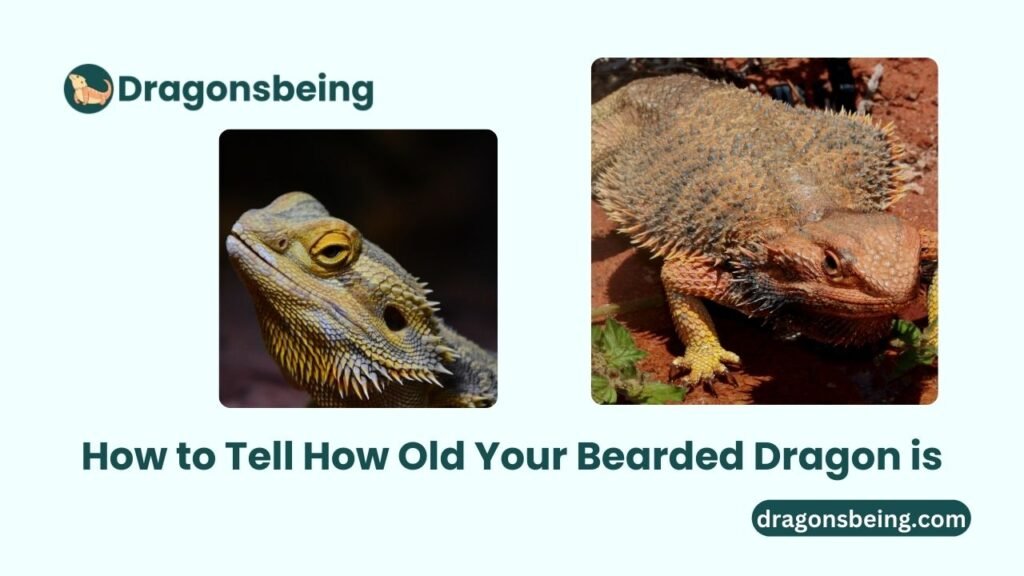Yes, sand can cause impaction in bearded dragons. Ingesting sand can lead to serious health issues, including blockages in the digestive tract.
Bearded dragons are popular reptiles known for their friendly demeanor and unique appearance. However, their care requires attention to dietary choices and habitat setup. One common concern among owners is the substrate used in their enclosures. Many choose sand for its natural look, but this can pose serious risks.
Impaction from ingesting sand is a significant health threat, potentially leading to severe complications. Understanding the risks associated with different substrates is crucial for maintaining a healthy environment for your bearded dragon. Choosing the right bedding can prevent serious health issues and ensure a long, happy life for your pet.
The Risk Of Impaction In Bearded Dragons
Bearded dragons are popular pets. Owners must be aware of health risks. One serious issue is impaction. Impaction occurs when something blocks the digestive system. Sand is a common cause of this blockage. Understanding the risks helps keep your dragon healthy.
Identifying Symptoms
Recognizing symptoms of impaction is crucial. Look for these signs:
- Lack of appetite: Refusal to eat food.
- Abdominal swelling: Bulging belly indicates trouble.
- Constipation: Infrequent or no bowel movements.
- Lethargy: Unusual tiredness or inactivity.
- Difficulty moving: Struggling to walk or climb.
Early detection can save your pet’s life. Monitor your bearded dragon closely.
Factors Leading To Impaction
Several factors can cause impaction in bearded dragons. Understanding these can help prevent issues:
| Factor | Description |
|---|---|
| Diet: | Low fiber foods can lead to blockage. |
| Sand substrate: | Ingesting sand can cause severe impaction. |
| Dehydration: | Insufficient water intake impacts digestion. |
| Stress: | Stress can slow down digestion. |
| Health issues: | Pre-existing conditions may worsen symptoms. |
Be proactive in preventing these factors. A healthy dragon is a happy dragon.
Understanding Bearded Dragons’ Digestive System
Bearded dragons have a unique digestive system. This system helps them break down food. Understanding this process is vital for their health. Impaction can lead to serious issues. Knowing how their digestion works can prevent problems.
Normal Digestive Function
The digestive system of bearded dragons includes several key parts:
- Mouth: Food enters here.
- Esophagus: Carries food to the stomach.
- Stomach: Breaks down food using acids.
- Intestines: Absorbs nutrients and water.
- Vent: Excretes waste.
Healthy digestion relies on:
- Proper diet: A mix of insects and vegetables.
- Hydration: Access to fresh water.
- Temperature: A warm basking area.
- UVB light: Helps with calcium absorption.
When all these factors are balanced, bearded dragons thrive. They digest food efficiently, gaining necessary nutrients.
How Impaction Disrupts Digestion
Impaction occurs when the digestive tract gets blocked. This blockage can be caused by:
- Ingesting sand or substrate.
- Eating large food items.
- Dehydration.
Signs of impaction include:
| Sign | Description |
|---|---|
| Loss of appetite | Refusing food or water. |
| Abdominal swelling | Swollen belly or discomfort. |
| Lethargy | Unusual tiredness or inactivity. |
| Constipation | Infrequent or absent bowel movements. |
Impaction disrupts normal digestion. Blocked intestines prevent nutrient absorption. This can lead to serious health problems. Quick action is essential if impaction is suspected.
Role Of Substrate In Bearded Dragon Habitats
The right substrate is vital for bearded dragons. It affects their health and comfort. Substrate impacts humidity, temperature, and overall well-being. Choosing safe materials can prevent health issues like impaction.
Choosing The Right Substrate
Selecting the best substrate is crucial. Here are key points to consider:
- Safety: Avoid materials that can cause impaction.
- Comfort: Choose soft, non-abrasive options.
- Maintenance: Easy-to-clean substrates save time.
- Humidity: Some substrates retain moisture better than others.
Always monitor your bearded dragon’s behavior. If they dig or burrow, ensure the substrate is suitable. Regularly check for signs of impaction, like lethargy or lack of appetite.
Common Substrate Options
Here are popular substrate choices for bearded dragons:
| Substrate Type | Pros | Cons |
|---|---|---|
| Reptile Carpet |
|
|
| Tile |
|
|
| Sand |
|
|
Each substrate has its pros and cons. Choose wisely to keep your bearded dragon healthy.
Examining The Debate: Is Sand Safe?
The safety of sand as a substrate for bearded dragons sparks strong opinions. Some owners praise its benefits, while others warn of risks. This section explores both sides of the sand debate.
Arguments For Using Sand
- Natural Environment: Sand mimics the dragon’s natural habitat.
- Burrowing Behavior: It allows bearded dragons to dig and burrow.
- Appearance: Sand can enhance the aesthetic of the terrarium.
- Temperature Regulation: Sand retains heat well for basking.
Arguments Against Using Sand
- Risk of Impaction: Sand can lead to serious digestive issues.
- Difficulty in Cleaning: Sand is hard to maintain and clean.
- Ingestion Hazard: Dragons may accidentally ingest sand while eating.
- Health Issues: Impaction can result in severe health problems.
Choosing the right substrate is crucial for your bearded dragon’s well-being. Weigh the pros and cons carefully before making a decision.
Impact Of Sand On Bearded Dragons’ Health
Bearded dragons are popular pets. Their health is very important. One common substrate is sand. Many owners wonder about sand’s effects. Can it cause impaction? Understanding this is vital for their well-being.
Studies On Sand And Impaction
Research shows mixed results on sand use. Some studies indicate a risk of impaction. Impaction occurs when sand blocks the digestive system. This can cause serious health issues.
| Study | Findings |
|---|---|
| Study 1 | High risk of impaction with sand substrate. |
| Study 2 | Sand may lead to digestive issues. |
| Study 3 | Some lizards tolerate sand better than others. |
These studies highlight potential dangers. Owners should consider these findings. Choosing the right substrate matters for health.
Veterinarian Views On Sand
Veterinarians often advise caution with sand. Many recommend safer alternatives. Common options include:
- Paper towels
- Reptile carpet
- Tile
These alternatives reduce the risk of impaction. They also make cleaning easier. Vets stress the importance of monitoring your pet’s health. Regular check-ups can help catch problems early.
Bearded dragons need proper care. Owners must be informed about substrate choices. Sand may not be the best option for every dragon.
Preventive Measures To Avoid Impaction
Preventing impaction in bearded dragons is crucial for their health. Careful attention to diet, hydration, and substrate choice can make a big difference. Below are effective strategies to help keep your pet safe from impaction.
Diet And Hydration
A balanced diet is essential for bearded dragons. Proper hydration plays a key role in digestion. Follow these tips for a healthy diet:
- Feed Variety: Include leafy greens, vegetables, and insects.
- Calcium Supplements: Use calcium powder regularly.
- Hydration: Offer fresh water daily.
- Moisten Food: Wet vegetables or insects to aid swallowing.
Monitor your dragon’s eating habits. Ensure they are not eating too fast. This can lead to choking and impaction.
Substrate Alternatives
The right substrate can prevent impaction. Avoid using sand or small particles. Consider these safer options:
| Substrate Type | Pros | Cons |
|---|---|---|
| Reptile Carpet | Easy to clean, safe | Can wear out over time |
| Paper Towels | Inexpensive, easy to replace | Less aesthetic appeal |
| Tile | Durable, easy to clean | Can be slippery |
Choose a substrate that suits your pet’s needs. Regularly clean the enclosure to maintain hygiene.
Treating Impaction In Bearded Dragons
Impaction in bearded dragons is serious. It can lead to pain and discomfort. Quick treatment is essential to ensure your pet’s health. Follow these guidelines for effective treatment.
First Aid For Impacted Bearded Dragons
First aid can help your bearded dragon. Here are steps to take:
- Warm Bath: Soak your dragon in warm water. This can help relax the muscles.
- Massage the Abdomen: Gently massage the belly. Use circular motions to encourage movement.
- Hydration: Ensure your dragon drinks water. Dehydration can worsen impaction.
- Diet Adjustment: Offer softer foods. This helps ease the blockage.
Monitor your dragon closely. Watch for any signs of improvement or worsening.
When To See A Vet
Seek veterinary care in these situations:
- Signs of severe discomfort or pain
- No bowel movement for several days
- Swelling in the abdomen
- Lethargy or lack of appetite
Vets can provide specialized treatments. They may suggest X-rays or medications. Early intervention is vital for recovery.
Making Informed Decisions For Your Pet
Choosing the right substrate for your bearded dragon is crucial. Many owners consider sand, but it can pose risks. Understanding these risks helps ensure your pet’s health. Weighing options carefully benefits both you and your dragon.
Weighing The Risks And Benefits
Sand can look appealing in a bearded dragon habitat. However, it may lead to serious health issues.
- Risks of Sand:
- Can cause impaction, leading to digestive problems.
- Sharp grains may injure your pet’s mouth.
- Difficult to clean, harboring bacteria.
- Benefits of Sand:
- Natural aesthetic for your pet’s environment.
- Allows for natural digging behavior.
Evaluate these points carefully. Make sure to prioritize your bearded dragon’s health.
Consulting With Reptile Experts
Getting advice from professionals is essential. Reptile experts offer valuable insights.
- Visit a veterinarian specializing in reptiles.
- Join forums or groups for bearded dragon owners.
- Read reputable care guides.
These resources help you make informed choices. Always seek expert opinions before deciding.
| Aspect | Sand | Alternative Substrates |
|---|---|---|
| Safety | Risk of impaction | Safer options available |
| Maintenance | Harder to clean | Easy to manage |
| Natural Behavior | Encourages digging | Can mimic natural habitat |
Frequently Asked Questions
Can Sand Harm Bearded Dragons?
Sand can cause impaction in bearded dragons, leading to serious health issues if ingested.
What Are Signs Of Impaction In Reptiles?
Signs include lethargy, loss of appetite, and difficulty passing stool. Immediate veterinary attention is essential.
Is Sand Safe For Bearded Dragons?
Using sand as substrate is risky. Opt for safer alternatives like reptile carpet or paper towels.
How Can I Prevent Impaction?
Provide a balanced diet, avoid sand, and ensure proper hydration. Regular vet check-ups are also crucial.
What Should I Do If My Dragon Is Impacted?
Seek veterinary assistance immediately. Early intervention can prevent severe complications and ensure your dragon’s health.
Can Impaction Be Treated At Home?
Home treatment isn’t advisable. Professional veterinary care is necessary for effective and safe treatment of impaction.
Conclusion
Sand can pose serious risks for bearded dragons, particularly regarding impaction. Understanding these dangers is crucial for pet owners. Opting for safer substrate options can help prevent health issues. Always prioritize your dragon’s well-being by providing a suitable environment. Keeping them healthy ensures a happy and active life.

Hi, I’m Dr. Michelle Mayers, a veterinary professional with a deep passion for animal health and well-being. Over the years, I’ve dedicated my life to caring for animals and helping pet owners better understand their furry, feathered, or scaly companions. On my blog, Dragonsbeing, I share insights, tips, and stories that aim to educate, inspire, and connect with fellow animal lovers. Join me at Dragonsbeing as we explore the fascinating world of veterinary care and celebrate the special bond between humans and animals!


